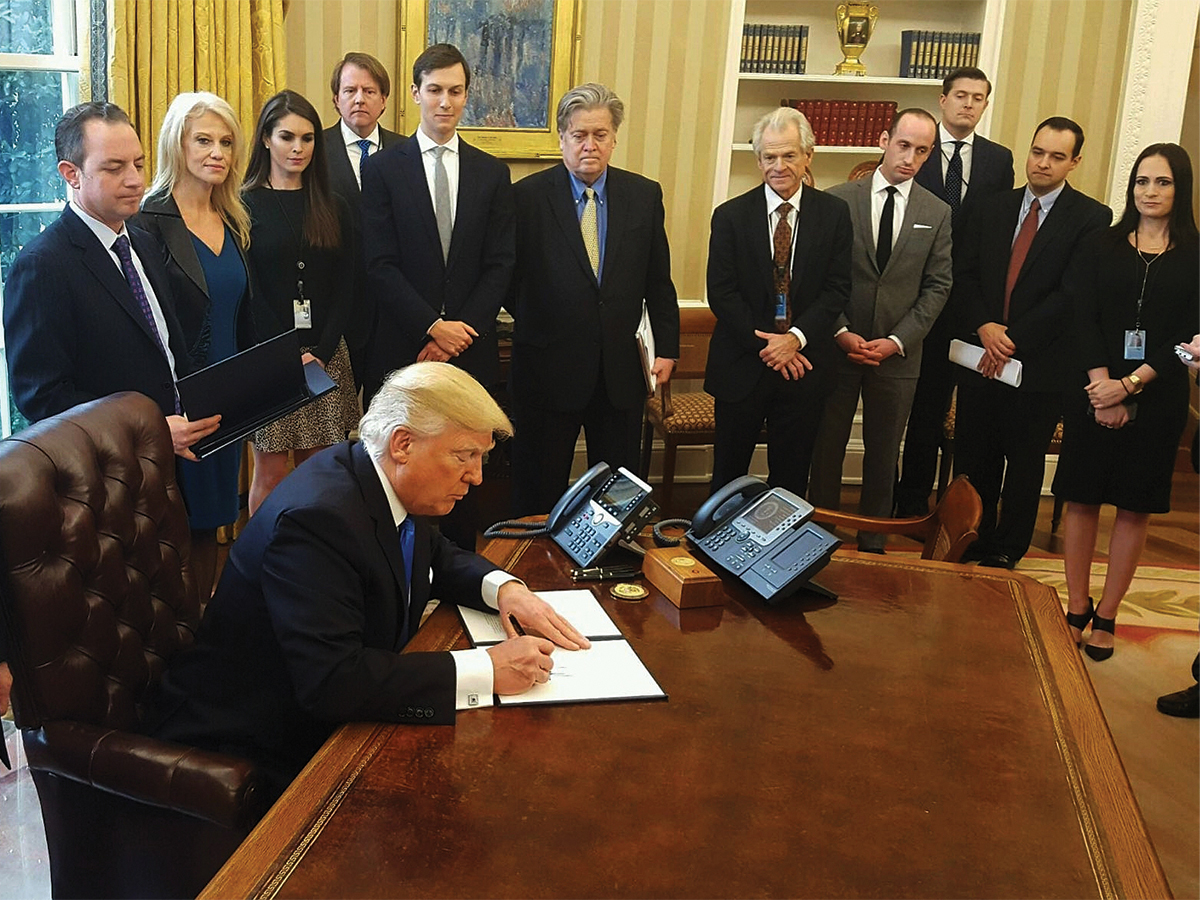
On Monday, Feb. 13, Associate Professor and Chair of the Middle East and Islamic Studies Department Muhammed Ali organized an event entitled “Conversation on the Immigration Ban,” which featured speakers including UCR professors and administrators to discuss President Donald Trump’s executive order (EO) that banned refugees and people from seven Muslim-majority countries from entering the U.S. for up to 120 days.
The panels were broken into three sections, each given a little over an hour to give a short presentation and answer questions. The first panel, titled, “Scrutinizing the Immigration Agenda,” discussed the issuance of the EO itself within a historical precedence. The second panel, titled, “American Stories and Experiences,” Muslim students and staff shared their personal experiences as Muslims living in the U.S. The final panel, titled, “Campus Resources,” featured UCR professors and administration explaining the resources available to both students and staff who may be affected by the executive order.
Before the first panel began, UCR Chancellor Kim A. Wilcox gave a brief statement to The Highlander in which he emphasized that the university “make(s) sure that we can do what no one else can do” in order to combat issues raised by actions like the EO. He also added, “We have students who are antagonizing each other who wouldn’t bother before but now feel empowered to do just that.”
The first panel included speakers Professor and Associate Dean of the School of Public Policy Karthick Ramakrishnan, Associate Professor in the Department of Gender and Sexuaity Sherine Hafez, Professor of Creative Writing Reza Aslan, Associate Professor in the Department of Comparative Language Jeffrey Sacks and Ethnic Studies Professor and Chair of the Academic Senate Dylan Rodriguez.
During the discussion, the panel came to the consensus that the EO, as well as other immigration policy, stems from California pushing the federal government to ban Chinese immigrants in the late nineteenth century. Aslan and Hafez pointed out that, “This is about the fundamental institutionalization of Islamophobia into this country.” In between panels, Ramakrishnan cited the Chinese Exclusion Act whilst stating, “You didn’t see laws that were passed specifically restricting entry until Chinese restriction.” He later went on to explain that it was after this that the U.S. first developed an immigration policy that eventually became what it is today.
The speakers for the second panel were Fariba Zarinebaf, professor of history, Dr. Mustafa Kuko, imam of the Islamic Center of Riverside, Hassanah El-Yacoubi, Ph.D. student in religious studies, Yasmeen Dabbas, president of UCR’s Students for Justice in Palestine and Laila Lalami, professor of creative writing. They discussed their personal stories of what it is like to be a Muslim in the U.S. All of the speakers stressed that Islamophobia could be combatted through greater interaction with Muslim people and communities. El-Yacoubi argued, “It becomes our job to disrupt this idea that over 60 percent of Americans do not know someone that is Muslim by getting to know Muslims.”
The final panel consisted of Vice Provost of International Affairs Kelechi Kalu, Senior International Scholar Advisor Kimberly Gentile and Associate Professor of Comparative Literature Mariam Lam, Ombudsperson Andrew Larratt-Smith and Dean of the College of Humanities, Arts and Social Sciences Milagros Pena to discuss various resources available to students and staff at UCR, including the Office of Campus Counsel, the University of California Office of the President and the Office of International Affairs.
After the event, fourth-year global studies and biology major Eric Espinosa commented, “There were so many things that were said that really opened my eyes up (…) I found this event very important because people don’t know most of these things or can’t even imagine things like that happening.”








